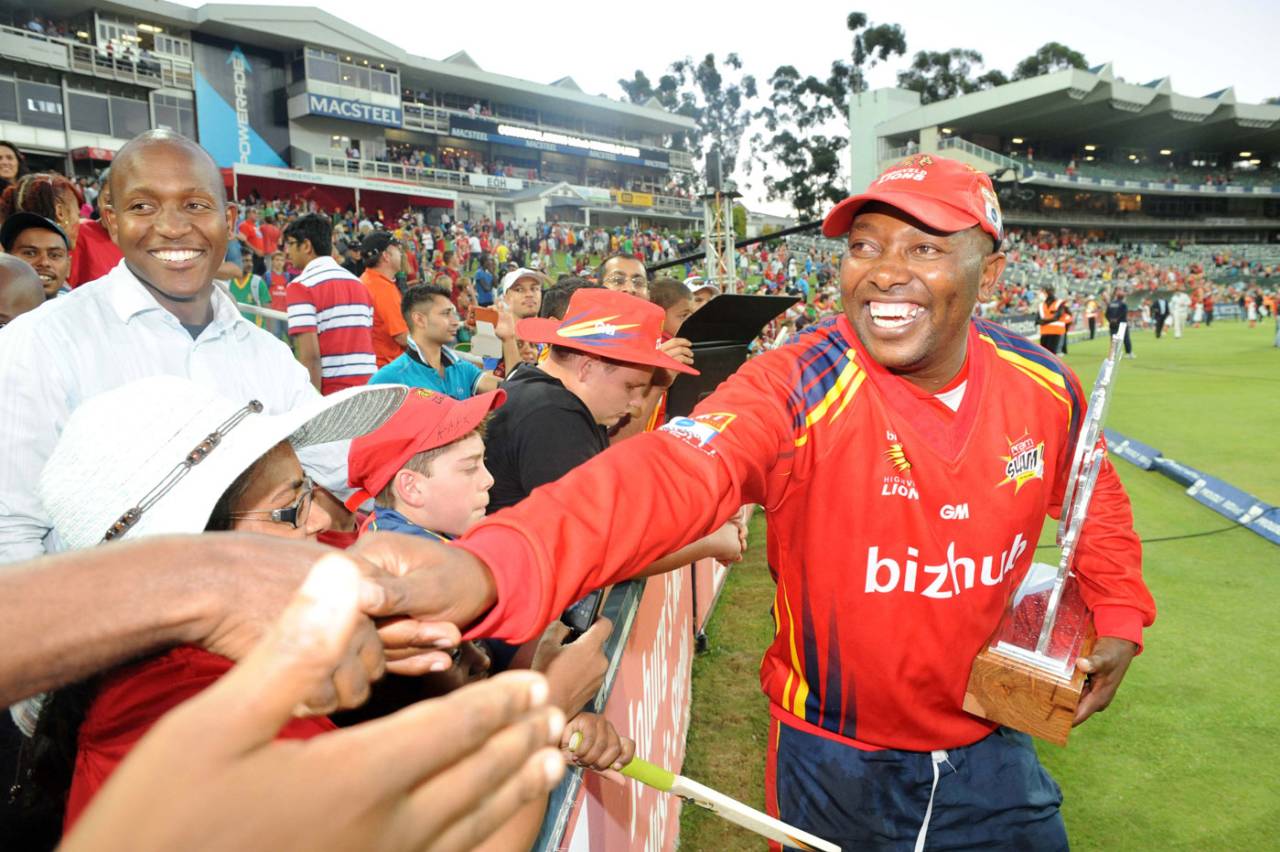CSA set to tighten financial belt
South African cricket is likely to be forced to operate within a tighter financial framework as CSA attempts to cushion itself from lower projected earnings
Firdose Moonda
12-Sep-2014

At the AGM on Saturday, CSA is expected to look at ways to maximise revenue from the Ram-Slam Twenty20 tournament • Lions Cricket
South African cricket is likely to be forced to operate within a tighter financial framework as CSA attempts to cushion itself from lower projected earnings. Last season's curtailed India tour left CSA without R319 million (US$31.9 million) they expected to earn and tomorrow's AGM is set to address how CSA will plug that gap in the coming year and in future.
ESPNcricinfo has learnt that the proposal likely to be put forward will be to concentrate revenue-generating activities in so-called bigger unions - Gauteng, Western Cape, Kwa-Zulu Natal and Port Elizabeth - leaving the smaller venues without big cricket, including internationals. The idea was already tested last season when fixtures in Bloemfontein and East London had to be cancelled when the India fixture changed and were not replaced even when Pakistan agreed to tour. In the coming seasons it is possible those grounds may not even host franchise T20 games, as part of a plan to transform the twenty-over tournament into a profitable "premier league," like some of its international counterparts.
South Africa's Ram-Slam has lagged behind the likes of the IPL, BBL and CPL and has been identified as an area where CSA can look to increase revenue. Last season, they experimented with a triple-header for the opening matches and it will be repeated in the coming summer as well. CSA have also appointed former captain Graeme Smith as tournament director and one of his tasks will be to recruit high-profile international names to play in the competition in the hope of making it a more attractive event for advertisers and spectators.
While the increased focus on the shortest format will ensure CSA grows overall, one insider said they do not think it will bode well individuals unions. "There are positives to the plan but it will create winners and losers. It looks like it may marginalise smaller unions but the bigger unions may get richer," the source said. "You have to ask whether CSA will be growing cricket as a truly national sport if they do this."
To guard against exactly that, three seasons ago in 2011-12, CSA embarked on a plan to ensure all South Africa's international grounds received a match every second season. That season, Sri Lanka played in Paarl, Kimberley and East London to capacity crowds. Paarl had not seen international cricket since the 2003 World Cup while Kimberley and East London had no matches for four years between 2008 and 2012. Although the logistics of taking cricket there is costly, at the time CSA believed it would be the best way to expose fans in all parts of South Africa to elite cricket.
While concerns among the smaller unions are that they will be sidelined, some believed it is the only solution for CSA as it responds to the realities of its current cash-flow. "It's all about making the game work within the finances South African cricket is going to have and being very clear about where we are going to allocate money and resources. It's about understanding exactly the scale of the business and where to allocate what as efficiently and professionally as possible."
CSA's new streamlined operational model is expected to be the only major announcement from the AGM in which no elections are scheduled.
Firdose Moonda is ESPNcricinfo's South Africa correspondent